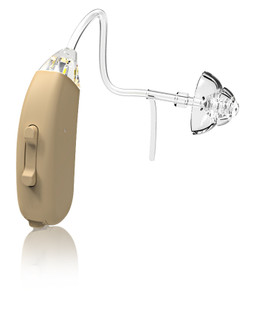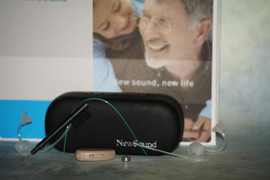Top 6 Common Tinnitus Questions and their Answers
May 02, 2022
Are you tormented by a constant buzzing, whistling, whirring, or hissing sensation in the ear? You may be experiencing tinnitus. It is the sensation of sound in the ear or head without an external source. The disturbing noise can be sporadic or consistent with the volume intensity ranging from mild, high-pitched to an annoying roar. Since tinnitus is a subjective noise that is only audible to the affected individual it can cause extreme stress, sleep disorder, frustration, and emotional pain. Sadly tinnitus doesn’t go away as there is no proven cure available. However, experts believe that sound therapy and best-rated hearing aids have the potential to provide some relief by soothing the irritating sounds. Let’s dwell on 6 questions about tinnitus to get a better understanding of the condition.
1. Who gets Tinnitus?
Tinnitus is a common problem that affects more than 600 million people across the world. It can occur in all age groups, including children but is more prevalent among those over 55 years. Also, musicians, construction workers, and airport ground staff are more susceptible to tinnitus due to loud noise exposure. Tinnitus can happen suddenly or manifest gradually over time. Most people have undergone short-term or temporary tinnitus at some point in their lives. Chronic tinnitus, though strongly linked with impaired hearing can strike people with normal hearing too.
2. What causes Tinnitus?
Tinnitus is not an illness but a symptom that crops up from an underlying condition. While it’s difficult to determine the exact cause of tinnitus, prolonged exposure to loud noise is cited as a common trigger. Apart from that, tinnitus may develop due to high blood pressure, injuries to the head or neck, depression, stress& anxiety, Meniere’s disease, large ear wax build-up, medications, hearing loss, trauma, ear infections, age-related damage of the cochlear hairs, and many other risk factors.
3. Will Tinnitus go away?
If tinnitus is temporary it will wane within a short period. For example, a high-pitched ringing perceived after watching an ear-splitting action film or attending a loud concert goes away within a few hours. Also, if tinnitus is generated by stress, blood pressure, earwax accumulation or a sinus infection the irksome sensation is likely to disappear once the said issue is resolved. However, if tinnitus is long-standing or age-related nothing can make the persistent sound stop.
4. Can Tinnitus Be Cured?
Currently, there is no cure for tinnitus. However, several strategies can help sufferers manage and cope with the condition. Education programs, counseling sessions, support groups, sound therapy, meditation, and learning relaxation techniques reportedly show promise in making tinnitus less noticeable. If tinnitus is tied with hearing loss, addressing the problem with hearing devices can be beneficial. You can buy hearing aids online that match your specific needs after consulting an audiologist. Also limiting your exposure to loud noise by wearing earplugs/earmuffs prevents tinnitus from getting worse.
5.Does Tinnitus Cause Hearing Loss?
While tinnitus doesn’t cause hearing loss, it’s very common in people afflicted with the disability. However, not all people with hearing impairment develop tinnitus. Then again, tinnitus and hearing loss are often detected together, as both can result from the malfunction in the auditory system or damage to the delicate hair cells of the inner ear by illness, infection, or loud noise.
6. Can Hearing Aids Help with Tinnitus?
The answer is a big yes. Since hearing loss and tinnitus are closely associated, the usage of hearing devices can play a big role in minimizing the impact of tinnitus. The apparatus is designed not only to improve hearing but also to take the edge off tinnitus by amplifying the level of ambient sounds in the background. Equipped with technologically advanced features, the modern rechargeable hearing aids help the brain focus on sounds you want to hear instead of the irritating internal buzz.
Final Takeaway:
If you or your loved one is experiencing tinnitus continually, the first step is to consult a reputable audiologist for an ear exam and a hearing test to pinpoint the cause and severity of the problem. Once the analysis determines that tinnitus is generated by hearing impairment, the professional may recommend the amplifying gear to mask the buzzing noise. Make sure to invest in a top-notch brand. Siemens hearing aids cost may be tad steep but they are high-end products with the potential to alleviate the effects of tinnitus for a more peaceful state of mind.










